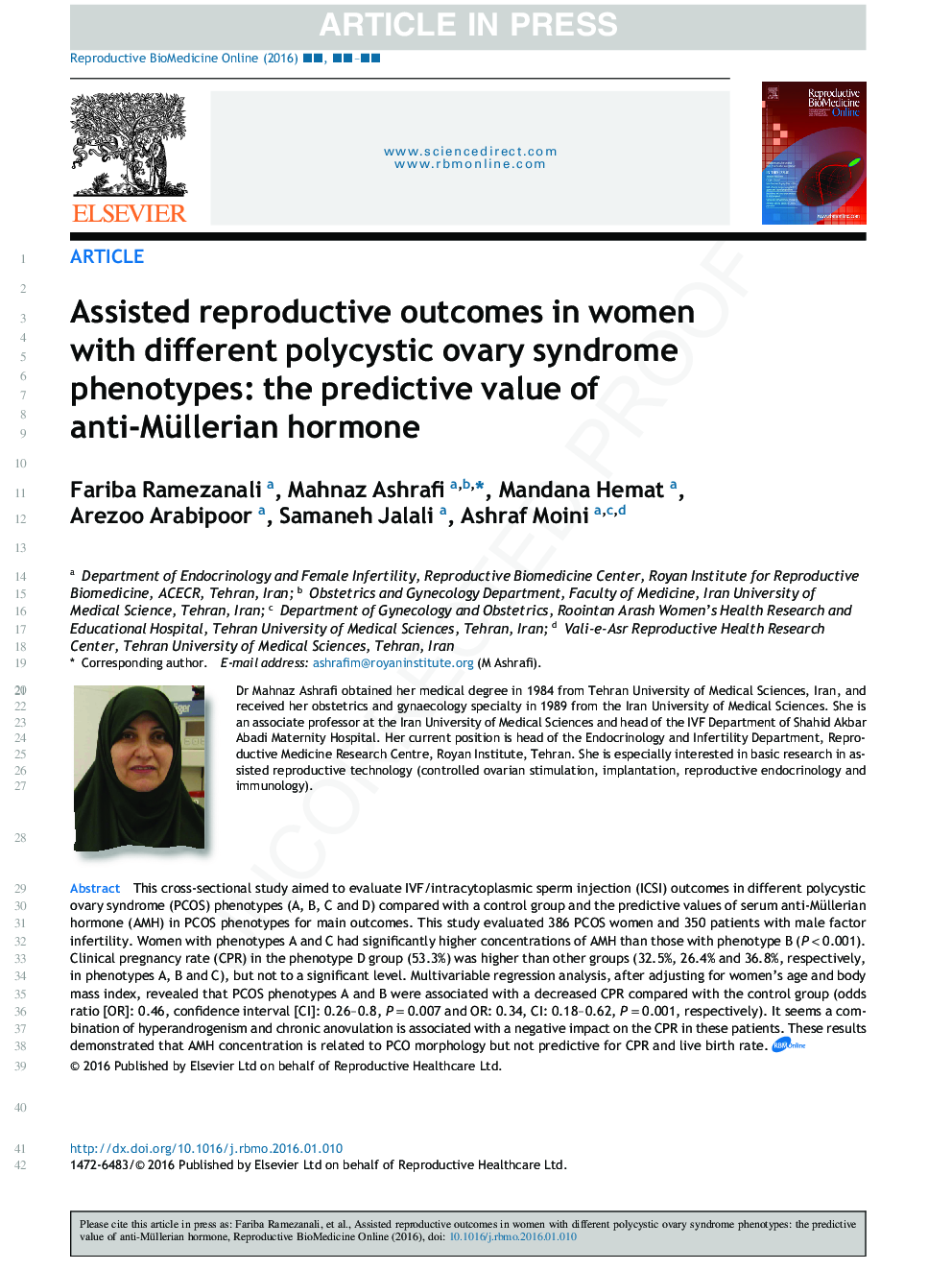| Article ID | Journal | Published Year | Pages | File Type |
|---|---|---|---|---|
| 6188660 | Reproductive BioMedicine Online | 2016 | 10 Pages |
Abstract
This cross-sectional study aimed to evaluate IVF/intracytoplasmic sperm injection (ICSI) outcomes in different polycystic ovary syndrome (PCOS) phenotypes (A, B, C and D) compared with a control group and the predictive values of serum anti-Müllerian hormone (AMH) in PCOS phenotypes for main outcomes. This study evaluated 386 PCOS women and 350 patients with male factor infertility. Women with phenotypes A and C had significantly higher concentrations of AMH than those with phenotype B (P < 0.001). Clinical pregnancy rate (CPR) in the phenotype D group (53.3%) was higher than other groups (32.5%, 26.4% and 36.8%, respectively, in phenotypes A, B and C), but not to a significant level. Multivariable regression analysis, after adjusting for women's age and body mass index, revealed that PCOS phenotypes A and B were associated with a decreased CPR compared with the control group (odds ratio [OR]: 0.46, confidence interval [CI]: 0.26-0.8, P = 0.007 and OR: 0.34, CI: 0.18-0.62, P = 0.001, respectively). It seems a combination of hyperandrogenism and chronic anovulation is associated with a negative impact on the CPR in these patients. These results demonstrated that AMH concentration is related to PCO morphology but not predictive for CPR and live birth rate.
Related Topics
Health Sciences
Medicine and Dentistry
Obstetrics, Gynecology and Women's Health
Authors
Fariba Ramezanali, Mahnaz Ashrafi, Mandana Hemat, Arezoo Arabipoor, Samaneh Jalali, Ashraf Moini,
